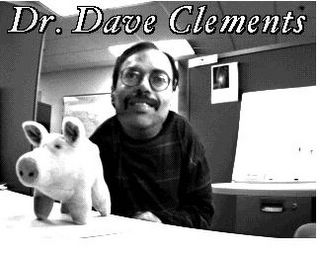Wednesday, November 02, 2005
A Comparison of Two Political Websites
A Comparison of Two Political Websites:
A User-Oriented Perspective
The current state of the Worldwide Web supports a grand number of politics-oriented sites. Some are so-called "blogs," while others pretend to a professional, journalistic look. As an assignment for Technical Communications 1, I chose to look at two sites with contrasting political philosophies, examining what the style, organization and tone can tell interested readers about the owners' attitudes toward their audiences. The two sites I examined are The Huffington Post www.huffingtonpost.com and World Net Daily http://www.wnd.com/ .
The Huffington Post is a well-known "progressive" Web site, operated by liberal gadfly Arianna Huffington. It is organized along the blog format, made popular by the Drudge Report www.drudgereport.com. This format consists of a series of photographs, graphics and links, interspersed with small headlines and grabby text. The layout is in three-column mode, for easy scanning by Western readers. The headline at the top of the page marks the topic of the day, giving the reader an idea of what most of the articles are about. Snappy headers like "Just In" in bright orange lead the readers through the text. There are enough graphics and photographs to keep the text from morphing into inscrutable chunks of verbiage.
One thing to note about the Huffington site is that it relies heavily on celebrities and mainstream news writers for the op-ed pieces it features so often. If the reader believes that Alec Baldwin has an opinion worth reading, then the reader can discover some satisfaction there. Sensationalistic headlines like "Why Are Contemporary Republicans So Full of Shit?" seem designed to pull in what some Republicans might call "the angry Left." Leftists are apparently the kind of people who don't mind the word, "shit" in headlines. The Huffington Post, while aimed at the general public, is not a "go do something" type of site. Rather, it presents enough material to lead the politically aware reader into making his or her own choices. Literally and figuratively, Huffington's site aims itself at the pro-choice crowd.
In contrast, World Net Daily appeals to the troglodyte rightists who also find Rush Limbaugh and Ann Coulter worthy of personality-cult status. Its organization, unlike Huffington's, seems blocky and hard-to-scan. World Net forces its readers to scroll down the page through an infinite number of headlines. There are no graphics--no pictures. It's blocky and geometrically stodgy. One could speculate World Net's readers find unusually high comfort in regular, yet boring geometrical formulas. Like Huffington, the site screams sensationalism: "How homosexuals hoodwinked Supremes" and "Satanism flourishing in Russia." A reader would be hard-pressed to find the word, "shit" anywhere; rather the buzzwords "illegals," [sic] "Christians" and the ever-present "dead babies." Unlike Huffington, World Net knows what it wants its readers to think and isn't embarrassed to tell them what to think. World Net is "anti-choice."
The two sites have different advertising demographics, as one can see by looking at the sidebar advertisements on the pages. Huffington displays ads for banks (Wells Fargo) and health insurance (PacifiCare). Poor World Net, however, must make do with ads for political tracts and publications by like-thinkers (e.g., The Politically Incorrect Guide to Islam and Terry's Story). To those who fear the onrushing supremacy of the Christian Right, perhaps there is some comfort in World Net's evident inability to secure major corporate funding.
Subscribe to:
Post Comments (Atom)

No comments:
Post a Comment